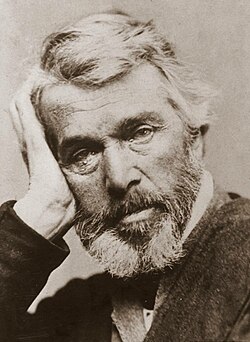Thomas Carlyle Quote
Related Quotes
By assembling in our mind all the consequential facts we have lived through and by reviewing, appraising or sometimes idealizing the numerous key points of the past, authenticity may gradually mutate...
Erik Pevernagie
Tags:
actuality, appraise, assemble, at last, authenticity, consequential, decay, experience, facts, factuality
For the most part, people strenuously resist any redefinition of morality, because it shakes them to the very core of their being to think that in pursuing virtue they may have been feeding vice, or i...
Stefan Molyneux
Tags:
anarchy, ancap, belief, brainwashing, coercion, critical thinking, dangerous, education, ethics, evidence
Heresy would like to think of itself as 'invented Truth'. But of course, all Reason and Logic would agree that no man can ever create Truth; he can only discover it. If heresy were ever at all benefic...
Criss Jami
Tags:
answers, apologetics, argumentation, beliefs, church, create, deceit, definition, discovery, doctrine
About Thomas Carlyle
Thomas Carlyle (4 December 1795 – 5 February 1881) was a Scottish essayist, historian, and philosopher. Known as the "sage of Chelsea", his writings strongly influenced the intellectual and artistic culture of the Victorian era.
Carlyle was born in Ecclefechan, a village in Dumfriesshire. He attended the University of Edinburgh where he excelled in mathematics and invented the Carlyle circle. After finishing the arts course, he prepared to become a minister in the Burgher Church while working as a schoolmaster. He quit these and several other endeavours before settling on literature, writing for the Edinburgh Encyclopædia and working as a translator. He initially gained prominence in English-language literary circles for his extensive writing on German Romantic literature and philosophy. These themes were explored in his first major work, a semi-autobiographical philosophical novel entitled Sartor Resartus (1833–34).
Carlyle eventually relocated to London, where he published The French Revolution: A History (1837). Its popular success made him a celebrity, prompting the collection and reissue of his earlier essays under the title of Miscellanies. His subsequent works were highly regarded throughout Europe and North America, including On Heroes (1841), Past and Present (1843), Cromwell's Letters (1845), Latter-Day Pamphlets (1850), and Frederick the Great (1858–65). He founded the London Library, helped establish the National Portrait Galleries in London and in Edinburgh, became Lord Rector of the University of Edinburgh in 1865, and received the Pour le Mérite in 1874 among other honours.
Carlyle occupied a central position in Victorian culture, being considered the "undoubted head of English letters" and a "secular prophet". Posthumously, a series of publications by his friend James Anthony Froude damaged Carlyle's reputation, provoking controversy about his personal life and his marriage to Jane Welsh Carlyle in particular. His reputation further declined in the aftermaths of World War I and World War II, when his philosophy was seen as a precursor of both Prussianism and fascism. Growing scholarship in the field of Carlyle studies since the 1950s has improved his standing, and though little-read today, he is yet recognised as "one of the enduring monuments of [English] literature".
Carlyle was born in Ecclefechan, a village in Dumfriesshire. He attended the University of Edinburgh where he excelled in mathematics and invented the Carlyle circle. After finishing the arts course, he prepared to become a minister in the Burgher Church while working as a schoolmaster. He quit these and several other endeavours before settling on literature, writing for the Edinburgh Encyclopædia and working as a translator. He initially gained prominence in English-language literary circles for his extensive writing on German Romantic literature and philosophy. These themes were explored in his first major work, a semi-autobiographical philosophical novel entitled Sartor Resartus (1833–34).
Carlyle eventually relocated to London, where he published The French Revolution: A History (1837). Its popular success made him a celebrity, prompting the collection and reissue of his earlier essays under the title of Miscellanies. His subsequent works were highly regarded throughout Europe and North America, including On Heroes (1841), Past and Present (1843), Cromwell's Letters (1845), Latter-Day Pamphlets (1850), and Frederick the Great (1858–65). He founded the London Library, helped establish the National Portrait Galleries in London and in Edinburgh, became Lord Rector of the University of Edinburgh in 1865, and received the Pour le Mérite in 1874 among other honours.
Carlyle occupied a central position in Victorian culture, being considered the "undoubted head of English letters" and a "secular prophet". Posthumously, a series of publications by his friend James Anthony Froude damaged Carlyle's reputation, provoking controversy about his personal life and his marriage to Jane Welsh Carlyle in particular. His reputation further declined in the aftermaths of World War I and World War II, when his philosophy was seen as a precursor of both Prussianism and fascism. Growing scholarship in the field of Carlyle studies since the 1950s has improved his standing, and though little-read today, he is yet recognised as "one of the enduring monuments of [English] literature".
